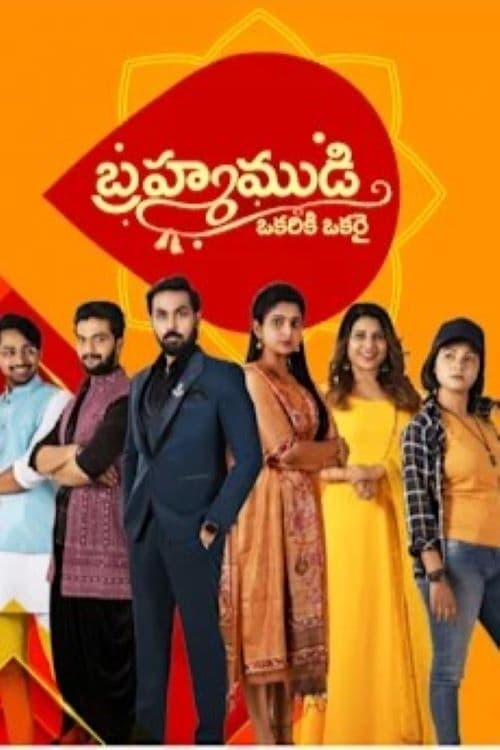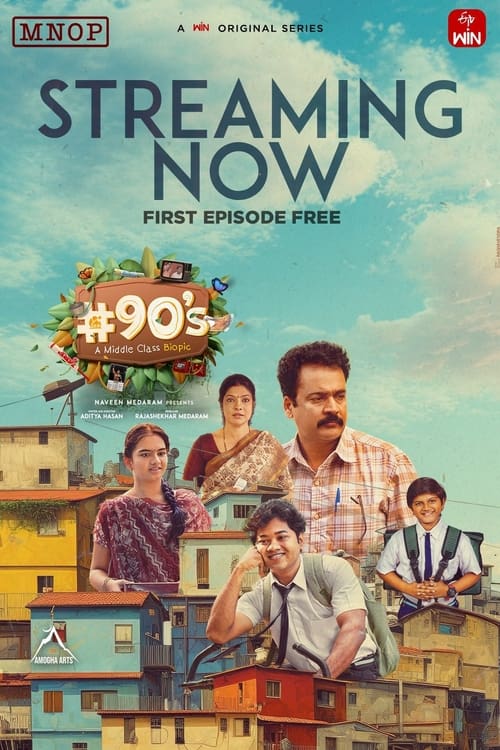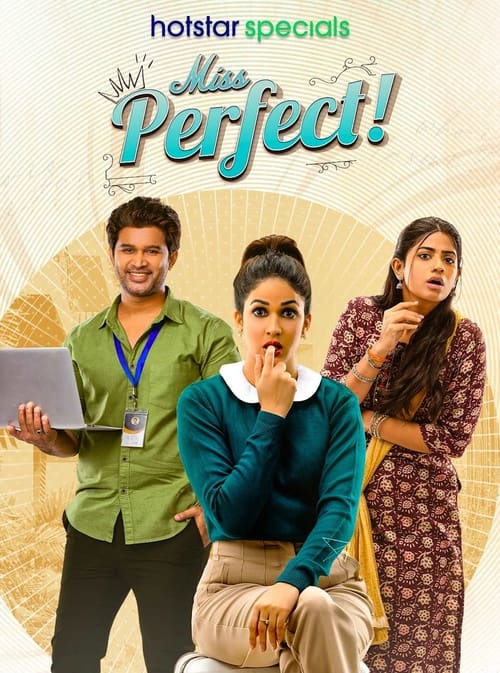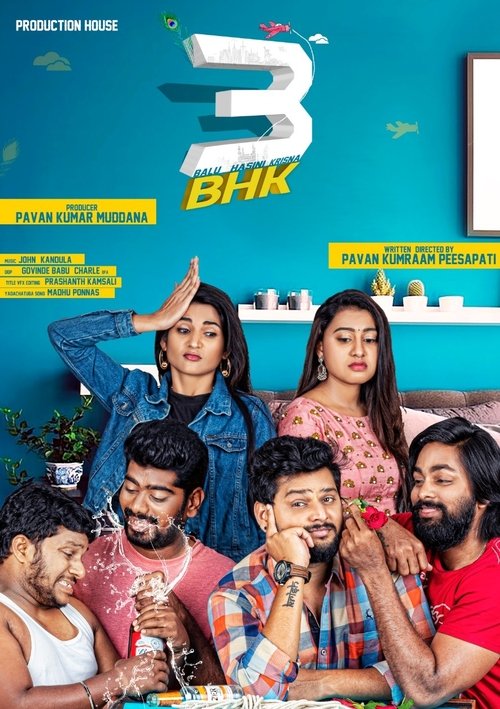
Ask Your Own Question
What is the plot?
In the first episode of "Kasthuri," we are introduced to the protagonist, Kasthuri, a young woman living in a small village. She is portrayed as a kind-hearted and resilient individual, deeply connected to her family and community. The episode opens with her helping her mother in their modest home, showcasing their close bond. As they prepare for a local festival, Kasthuri expresses her excitement about the celebrations, revealing her optimistic nature.
As the festival begins, the village is filled with vibrant colors and lively music. Kasthuri participates in traditional dances, and her joy is palpable. However, the atmosphere shifts when a group of outsiders arrives, led by a charismatic but menacing figure named Arjun. He is immediately drawn to Kasthuri, which makes her uncomfortable. Despite her unease, she tries to remain polite, but Arjun's persistent advances unsettle her.
In the following scenes, we see Kasthuri's internal conflict as she grapples with her feelings about Arjun. While he is charming, she senses a darker side to him. Meanwhile, her family is concerned about the outsiders' intentions, especially her father, who warns her to stay away from them. This tension builds as Arjun continues to pursue Kasthuri, leading to a confrontation between him and her father, where her father firmly stands his ground, asserting that their family will not be intimidated.
As the days pass, Kasthuri's life becomes increasingly complicated. Arjun's obsession with her grows, and he begins to manipulate situations to isolate her from her friends and family. One evening, he corners her in a secluded area of the village, where he tries to convince her to leave with him. Kasthuri, feeling threatened, firmly rejects him, which angers Arjun. He warns her that there will be consequences for her defiance, leaving her shaken.
In the next episode, the consequences of Kasthuri's rejection become apparent. Arjun's gang starts to harass her family, vandalizing their property and spreading rumors about them in the village. Kasthuri's father becomes increasingly protective, and the family decides to seek help from the village elders. During a tense meeting, the elders discuss the growing threat posed by Arjun and his gang, but they are hesitant to take action due to fear of retaliation.
Kasthuri, feeling the weight of her family's struggles, decides to take matters into her own hands. She begins to gather evidence of Arjun's wrongdoings, documenting the harassment and speaking to other villagers who have also been affected. Her determination to stand up against Arjun showcases her bravery, but it also puts her in greater danger.
As the plot progresses, Kasthuri's efforts lead to a pivotal moment when she confronts Arjun in front of the village. She publicly accuses him of his actions, rallying support from other villagers who have suffered at his hands. This confrontation escalates into a physical altercation, with Arjun's gang attacking Kasthuri and her supporters. The scene is chaotic, filled with shouts and the sounds of struggle as villagers fight back against the gang.
In the aftermath of the confrontation, the village is divided. Some support Kasthuri, while others fear Arjun's wrath. The tension reaches a boiling point when Arjun retaliates by kidnapping a close friend of Kasthuri, using her as leverage to force Kasthuri into submission. This act of desperation propels Kasthuri into a race against time to save her friend, showcasing her resourcefulness and determination.
The climax of the season occurs when Kasthuri devises a plan to rescue her friend. She gathers a group of brave villagers willing to stand against Arjun. They confront him in his hideout, leading to a tense standoff. The scene is filled with suspense as Kasthuri and her allies strategize their approach, using their knowledge of the terrain to their advantage.
In a dramatic showdown, Kasthuri faces Arjun directly. The confrontation is intense, filled with emotional stakes as she fights not only for her friend but for her own freedom and the safety of her village. The fight is physical and emotional, with Kasthuri drawing on her inner strength to overcome Arjun's aggression. Ultimately, she manages to outsmart him, leading to his defeat and the rescue of her friend.
The season concludes with the village coming together to celebrate their victory over Arjun. Kasthuri is hailed as a hero, but she remains humble, emphasizing the importance of community and resilience. The final scenes depict a sense of hope and renewal as the villagers begin to rebuild their lives, united against the threats they once faced. Kasthuri's journey of empowerment and courage sets the stage for future challenges, leaving viewers eager for what lies ahead.
What is the ending?
In the ending of "Kasthuri," the main character, Kasthuri, faces a series of emotional confrontations that lead to a resolution of her internal and external conflicts. The climax reveals the truth about her relationships, and she ultimately makes a choice that defines her future.
As the story unfolds, Kasthuri finds herself at a crossroads, grappling with the consequences of her decisions and the impact they have on her loved ones. The final scenes depict her standing firm in her resolve, leading to a bittersweet conclusion where she embraces her identity and the path she has chosen.
The final moments of "Kasthuri" begin with a tense atmosphere as Kasthuri stands in her family home, the walls echoing with memories of joy and sorrow. The camera captures her expression, a mix of determination and vulnerability, as she prepares to confront the people who have shaped her life.
Scene 1: The Confrontation Kasthuri gathers her family in the living room, the air thick with unspoken words. Her mother, who has always been a pillar of strength, looks at her with concern, sensing the weight of the moment. Kasthuri takes a deep breath, her heart racing, and begins to speak. She addresses the misunderstandings that have plagued their relationships, her voice steady yet filled with emotion. The tension in the room is palpable as her siblings exchange glances, unsure of how to react.
Scene 2: The Revelation As Kasthuri reveals her true feelings about her aspirations and the sacrifices she has made, the camera zooms in on her face, capturing the tears that threaten to spill. She speaks of her dreams, her struggles, and the fear of losing her family's support. Her mother's expression softens, and the siblings begin to understand the depth of Kasthuri's pain. This moment of vulnerability opens the door for healing, as they start to share their own fears and regrets.
Scene 3: The Decision In the following scene, Kasthuri stands alone in her room, reflecting on the conversations she just had. The soft light filters through the window, illuminating her face as she contemplates her future. She picks up a journal, flipping through pages filled with her dreams and aspirations. The internal struggle is evident as she weighs the importance of family against her desire for independence. The music swells, underscoring her emotional turmoil.
Scene 4: The Resolution The climax arrives when Kasthuri makes a bold decision. She walks back into the living room, where her family is still gathered. With newfound confidence, she announces her choice to pursue her dreams, regardless of the challenges that lie ahead. The family is initially taken aback, but as she speaks passionately about her vision, they begin to rally around her. The scene is filled with warmth as they embrace her, symbolizing their acceptance and support.
Scene 5: The Farewell In the final scene, Kasthuri stands at the threshold of her home, ready to embark on her journey. The sun sets behind her, casting a golden hue over the scene. Her family stands behind her, a united front, as she takes her first step into the unknown. The camera lingers on her face, a mixture of excitement and apprehension, before fading to black.
As the credits roll, the fate of each main character is clear. Kasthuri steps into her future with the support of her family, having reconciled her dreams with her relationships. Her mother, once worried, now beams with pride, while her siblings have learned the importance of communication and understanding. The story concludes on a hopeful note, emphasizing the strength found in vulnerability and the power of familial bonds.
Is there a post-credit scene?
In "Kasthuri," Season 1, there is no post-credit scene. The episodes conclude without any additional scenes or teasers after the credits roll. The focus remains on the unfolding narrative and character development throughout the episodes, leaving viewers to reflect on the story and its emotional arcs as the credits play. The absence of a post-credit scene emphasizes the show's commitment to its central themes and character journeys, allowing the audience to fully engage with the plot without additional distractions.
What are the key turning points in Kasthuri's character development?
Key turning points in Kasthuri's character development include her decision to pursue her dreams despite familial pressure, her confrontations with the antagonist, and moments of self-discovery that lead her to assert her independence. Each turning point is marked by emotional turmoil and growth, showcasing her evolution throughout the season.
What is the significance of the character Kasthuri in the story?
Kasthuri is the central character whose journey drives the narrative. She embodies resilience and determination, facing numerous challenges that test her strength and resolve. Her relationships with other characters, particularly her family and love interests, reveal her emotional depth and the struggles she endures.
How does Kasthuri's relationship with her family evolve throughout the season?
Kasthuri's relationship with her family is complex and evolves significantly. Initially, she feels a strong sense of duty towards her family, but as the season progresses, she grapples with her own desires and aspirations, leading to conflicts that challenge her loyalty and love for them.
What role does the antagonist play in Kasthuri's life?
The antagonist serves as a catalyst for Kasthuri's growth, presenting obstacles that force her to confront her fears and insecurities. Their confrontations are intense and emotionally charged, highlighting the stakes involved in Kasthuri's journey and her fight for her own identity.
How does the setting influence the events in Kasthuri's life?
The setting plays a crucial role in shaping the narrative. The vibrant yet challenging environment reflects Kasthuri's internal struggles and aspirations. Key locations, such as her home and workplace, serve as backdrops for pivotal moments that define her character and relationships.
Is this family friendly?
"Kasthuri," season 1, produced in 2020, contains several themes and scenes that may be considered objectionable or upsetting for children or sensitive viewers. Here are some aspects to be aware of:
-
Family Conflict: The show explores intense family dynamics, including arguments and emotional confrontations that may be distressing for younger viewers.
-
Romantic Tension: There are romantic subplots that involve misunderstandings and emotional turmoil, which could be confusing or uncomfortable for children.
-
Social Issues: The series touches on societal pressures and expectations, which may include themes of discrimination or class differences that could be heavy for sensitive audiences.
-
Emotional Struggles: Characters experience significant emotional pain, including feelings of betrayal, loss, and heartache, which may resonate deeply and evoke strong feelings.
-
Dramatic Moments: There are scenes of heightened drama that may include shouting, crying, or other intense emotional expressions that could be unsettling.
-
Cultural Context: Some cultural references or practices depicted may not be familiar to all viewers, potentially leading to misunderstandings or discomfort.
Overall, while "Kasthuri" offers rich storytelling and character development, it does contain elements that may not be suitable for all children or sensitive viewers.















